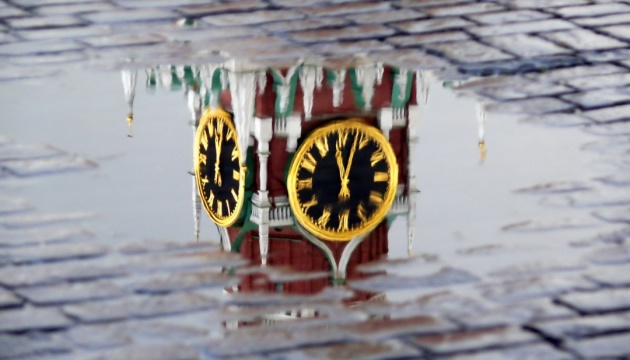
Dutch Referendum - What is it really about?
From the perspective one who has worked for more than a decade as a staff member in the EU institutions, and latterly within the private doing business with the institutions, it is clear that Europeans are becoming increasingly disillusioned with the EU leadership, such as it is.
In the Netherlands, Ukraine is suffering from the fallout of the Greek crisis. The economic hardships endured by European taxpayers in order to bail out the Greek economy are well documentated, what is not so well known is the bitter, sometimes vicious, political battles that took place in the European Council, the Commission, the Parliament, and in, and between, the member states.
Thanks to the tried and tested political tactic of 'issue linkage', voters will arrive at the polling stations on the 6th with concerns about the economy, immigration, unemployment, and a general mistrust of the EU foremost in their minds, and these are the issues that they will base their decision on.
The Dutch people should focus on the issue, which is ratification, and not allow themselves to react to scare mongering, selective evidence, and half-truths. It is also important that Ukraine is a long way from EU membership - but if we are too achieve our aim of having strong, secure, democratic neighbours at our borders, we have to extend help, and the free trade agreement (FTA) is the means we are using.
Of course, the Kremlin has a very strong interest in the outcome of the referendum.
Dutch eurosceptics, and their fellow travellers from across the EU, argue that Ukraine is corrupt, nepotistic, and undemocratic. Vladimir Putin would agree with them, and that is just the way he wants to keep it.
A divided Europe, with the key economic actors being controlled by shadowy unaccountable figures behind the scenes is the model that works so well for the cardinals of the Kremlin.
Derailing the agreement would have two highly desirable effects for Russia:
Firstly, Ukraine's desire to pursue its future in the Western European sphere of influence is a threat to Putin's model. In the Moscow mindset, the old Brezhnev doctrine still applies - “What we have, we hold”. Or as Lord Tebbit once said of the Russian approach to international diplomacy, “What is ours is ours, what is yours is negotiable”.
When then President of Ukraine, convicted criminal and now fugitive from justice Viktor Yanukovych, did his master's bidding in November 2013 and suppered the country's association agreement, the Kremlin was shocked by the result. The resulting Maidan protests attracted massive public support, and even then murders of innocent civilians in the streets could not dampen the resolve of the protesters. Yanukovych was forced to flee the country with his life (and many millions of dollars) and Moscow's puppet government fell.
Vladimir Putin's response was to launch his troops into Crimea. His message to Ukraine was unambiguous: "We are not going to let you go without a fight." This message was intended to be heard as clearly in Brussels, London, Paris, and Berlin as it was in Kyiv.
Secondly, and this is infinitely more important to the Russians, a 'No' vote on April 6th will further undermine both unity between the 28 member states, and bring into sharp question the political relevance of the EU institutions. The European Parliament voted to ratify the deal, but what does that mean if a minority in one member state can theoretically overturn the collective democratic decision of 28 countries?
Vladimir Putin's immediate goals, which take priority over all other considerations, are to weaken, and even to effectively destroy, both the EU and NATO. This he seeks to do from within.
Now, of course, The Russian president effectively sponsors one, possibly two, of the political groups in the European Parliament.
Marine Le Pen's Front National is heavily reliant on Moscow money: She has stated that “I admire Vladimir Putin. He makes mistakes, but who doesn't... I think that Vladimir Putin has principles and a vision of the future that is necessary to ensure Russia's prosperity, which it deserves”.
Nigel Farage's UK Independence Party (UKIP) often expresses opinions in which the EU is entirely to blame for Russia's attack on, and subsequent illegal annexation of, Crimea. Farage, who in 2014 named Vladimir Putin as the world leader he most admires, has declared his support for the 'No' campaign in the the Dutch vote.
The referendum is not legally binding, and the Dutch government, and indeed all of the major political parties, are absolutely in favour of the agreement with Ukraine. The Dutch constitution gives primacy the political institutions on legislative matters.
Whilst referenda can be seen as a form of direct democracy, and we are witnessing increased use of the tool across Europe, questions will need to be asked in the wake of the vote on April 6th as to how the concept has been applied. The British referendum in June, questioning the country's continued membership of the EU, clearly concerns a fundamental constitutional issue on which nobody under the age of 60 has ever had a chance to vote, and so the question must be put to the people.
Dutch ratification of the EU-Ukraine Association Agreement and FTA is not a constitutional issue. A democratically elected parliament and government has made its decision, based on the mandate given freely by the electorate. That the issue has been hijacked by external elements must surely prompt an urgent review regarding future application of the referendum process.
Exactly what action the Dutch government takes in the event of a 'No' vote is likely to depend on a number of factors, with turnout being key? The lower the turnout, the more likely it is that the result will be 'No', however the mandatory threshold is 30%, and so a fine line is being trodden. A high turnout delivering a verdict of 'No' could be problematic for the government.
Most observers consider that the referendum is highly unlikely to change government policy, however, but great damage has already been achieved. The integrity of the Dutch and European political institutions has been undermined, and the populists, who certainly do not have Europe's best interests at heart, have been given a platform that they did not deserve.
Gary Cartwright, British journalist and publisher. Exclusively for UKRINFORM




